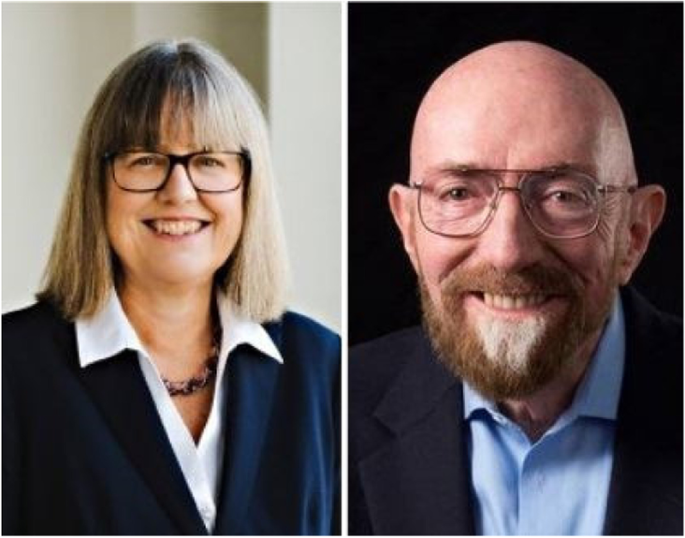Vol.32 (Aug) 2022 | Article no.22 2022

Register now and submit abstracts at the official Congress website: https://aip-congress.org.au/index.html.
Register to attend our AIP Congress in Adelaide this December and you will be able to watch two Nobel Prize winners—Professors Donna Strickland and Kip Thorne—give plenary talks.
Full registration for the Congress also includes the Welcome Reception, catered poster sessions, and the Congress dinner.
Professor Donna Strickland (University of Waterloo) was jointly awarded the 2018 Nobel Prize in Physics with Professor Gérard Mourou for developing chirped pulse amplification, a method of creating very intense, ultrashort laser pulses without destroying the amplifying material. Modern applications of this technology in medicine and industry include its use in laser eye surgery and in the machining of small glass parts employed in mobile phones.
At the time of her award, Professor Strickland was only the third woman to have won the Nobel Prize in Physics. She was also awarded the 2019 Geoffrey Frew Fellowship from the Australian Academy of Science and Australian and New Zealand Optical Society.
Professor Kip Thorne (Caltech) won the 2017 Nobel Prize in Physics with Professors Rainer Weiss and Barry C. Barish for their contributions to the Laser Interferometer Gravitational-Wave (LIGO) detector and the observation of gravitational waves. Professor Thorne co-founded the LIGO Project in 1984. The first gravitational waves were detected by LIGO in 2015 from a collision of black holes. This confirmed an important prediction of Einstein’s general theory of relativity.
Prof. Thorne’s research has also covered black holes and wormholes. He was the science advisor and an executive producer of Christopher Nolan’s sci-fi film Interstellar (2014).
Other confirmed plenary speakers at the Congress include Professors Ania Bleszynski Jayich (University of California, Santa Barbara), Noah Finkelstein (University of Colorado), Laura Greene (Florida State University), Jeremy O’Brien (University of Western Australia and PsiQuantum), Jirina Stone (University of Oxford), Kai Bongs (University of Birmingham), Stefan Maier (Monash University) and Tracy Slatyer (MIT).
This year’s Congress will be held at the Adelaide Convention Centre from 11–16 December.
It will be co-locating with the Australian and New Zealand Conference on Optics and Photonics (ANZCOP) and the 7th International Workshop on Speciality Optical Fibres (WSOF).
Submission of abstracts is open until 29 July, and registrations are open until 2 December.
Please visit the Congress website for more information. It is updated regularly.
Photo credit: University of Waterloo (Prof Strickland) and Caltech (Prof Thorne).
J. Wang, X.-J. Liu, H. Hu, Exact quasiparticle properties of a heavy polaron in BCS Fermi superfluids. Phys. Rev. Lett. 128, 175301 (2022). https://doi.org/10.1103/PhysRevLett.128.175301
J. Wang, X.-J. Liu, H. Hu, Heavy polarons in ultracold atomic Fermi superfluids at the BEC-BCS crossover: formalism and applications. Phys. Rev. A 105, 043320 (2022). https://doi.org/10.1103/PhysRevA.105.043320
H. Hu, J. Wang, J. Zhou, X.-J. Liu, Crossover polarons in a strongly interacting Fermi superfluid. Phys. Rev. A 105, 023317 (2022). https://doi.org/10.1103/PhysRevA.105.023317
The author(s) read and approved the final manuscript.
The authors declare that they have no competing interests.
If you'd like to subscribe to the AAPPS Bulletin newsletter,
enter your email below.